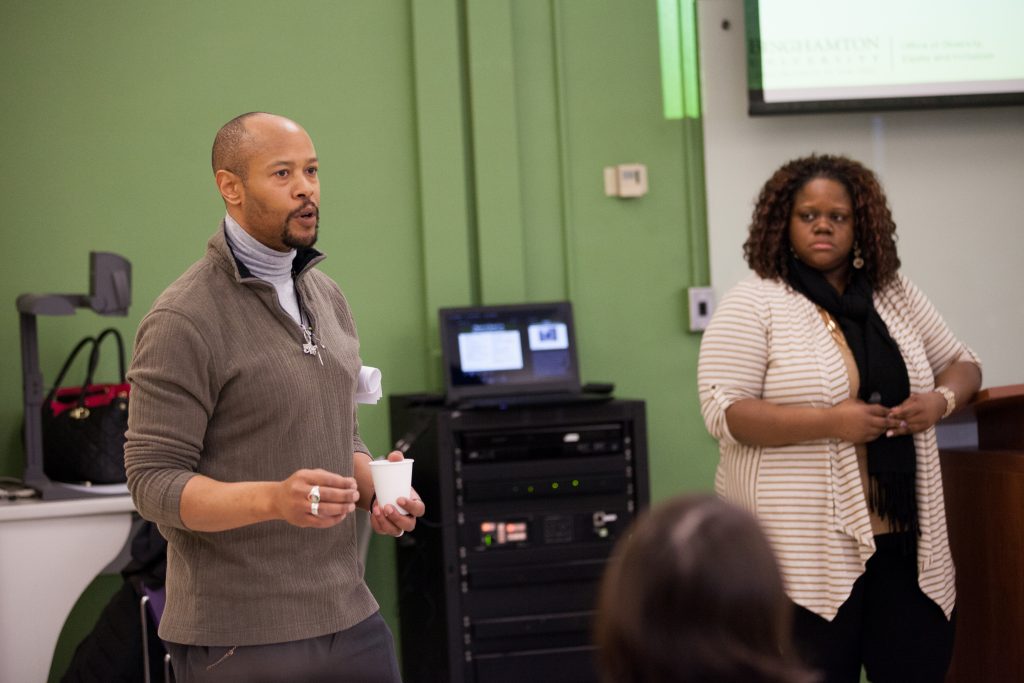
Conversations regarding race dominated national discourse during the 2016 presidential election and have continued to make headlines across the country. On Wednesday night, students, faculty and staff participated in a forum designed to ignite similar conversations about diversity at Binghamton University.
The forum, titled “A Public Deliberation: The State of Race at Binghamton University,” was sponsored by the University’s Division of Diversity, Equity and Inclusion (DEI), the Dean of Students Office and the President’s Task Force on Diversity and Inclusion at SUNY Broome, and is part of the State of Race at Binghamton University series, which focuses on inclusion and racial relations.
According to DEI diversity specialist Lea Webb, the goal of these programs is to safely stimulate conversation on complicated topics related to racism in the United States.
“This public deliberation program on racial justice is one of our signature programs through UDiversity,” Webb said. “Through campus climate surveys, conversations with students and faculty and just the national climate, we really are trying to be more active on creating a safe space to talk about contentious issues and societal challenges, and racism is one of those challenges.”
The discussion focused on how ethnic and racial problems on campus pose serious challenges, especially for minority students. The forum utilized a community-based dialogue model, a discussion framework developed by the Kettering Foundation and the National Issues Forums that splits programs into four frames designed for small-group discussion.
According to Webb, this model was used in order to stimulate discussion based on students’ and faculty members’ experiences with racism.
“This program provides an opportunity for people to share their experiences on race in [higher education] and in their communities and also how we begin to change the challenges associated with racism,” Webb said. “Everyone comes to this space from a variety of life experiences, so taking these wicked problems such as racism, how do we begin to find ways to find justice for everyone?”
Scott Corley, an associate professor at SUNY Broome and a first-year graduate student student in the College of Community and Public Affairs at BU, stated that these deliberations allow for conversation on complicated topics from various different viewpoints.
“Public deliberations are designed for everyday people, community members, regular citizens and in this case, students, to come together to talk about any relatively complicated or wicked problems,” Corley said. “They’re designed in such a way to get people to move past debating about issues; they’re structured to talk about one topic from different viewpoints. Hopefully by the end of the discussion, people have an understanding of why this is a complicated problem and how there is no such thing as a perfect solution.”
The event culminated in a large group discussion with approximately 30 attendees who compared and shared some of their experiences with race on BU’s campus. One attendee spoke about a time when a professor used a racial slur in class.
According to Nikita Robinson, a staff member in the Dean of Students office and a BU alumna, conversations like this are necessary to ease the tensions on campus.
“I think right now there is a lot of tension so I like to have these discussions,” Robinson said. “People need to be comfortable having uncomfortable conversations and do it in a respectable manner. I like that people that are like-minded want to come together and address these issues. Though I do think administration cares about diversity on our campus, I think that there are things that could be better. It was important for me to come tonight and learn about the different views of the state of race at BU.”


